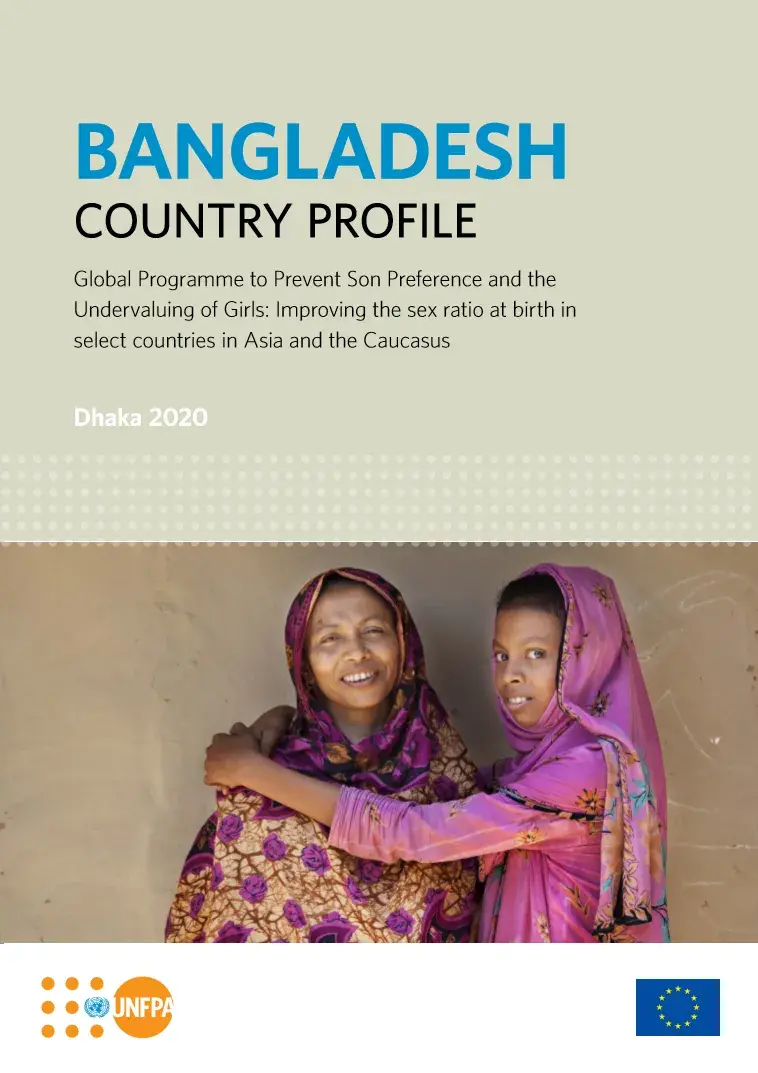Globally, gender-biased sex selection has become a serious concern among policymakers, development partners and researchers because of its implications for human rights, as well as its socioeconomic and demographic implications. Gender-biased sex selection is a consequence of interactions between deeply rooted religiocultural values and socioeconomic status, as well as traditional norms of patriarchy where son preference prevails and manifests through a skewed sex ratio at birth.
This country profile provides an overview of trends in sex ratio at birth in Bangladesh, including variations by region, social and economic factors and parity. Factors contributing to strong son preference, skewed sex ratio at birth and possible emergence of gender-biased sex selection are presented. The profile concludes with a description of the national policy framework and efforts to address the skewed sex ratio at birth, followed by recommendations for future interventions.


